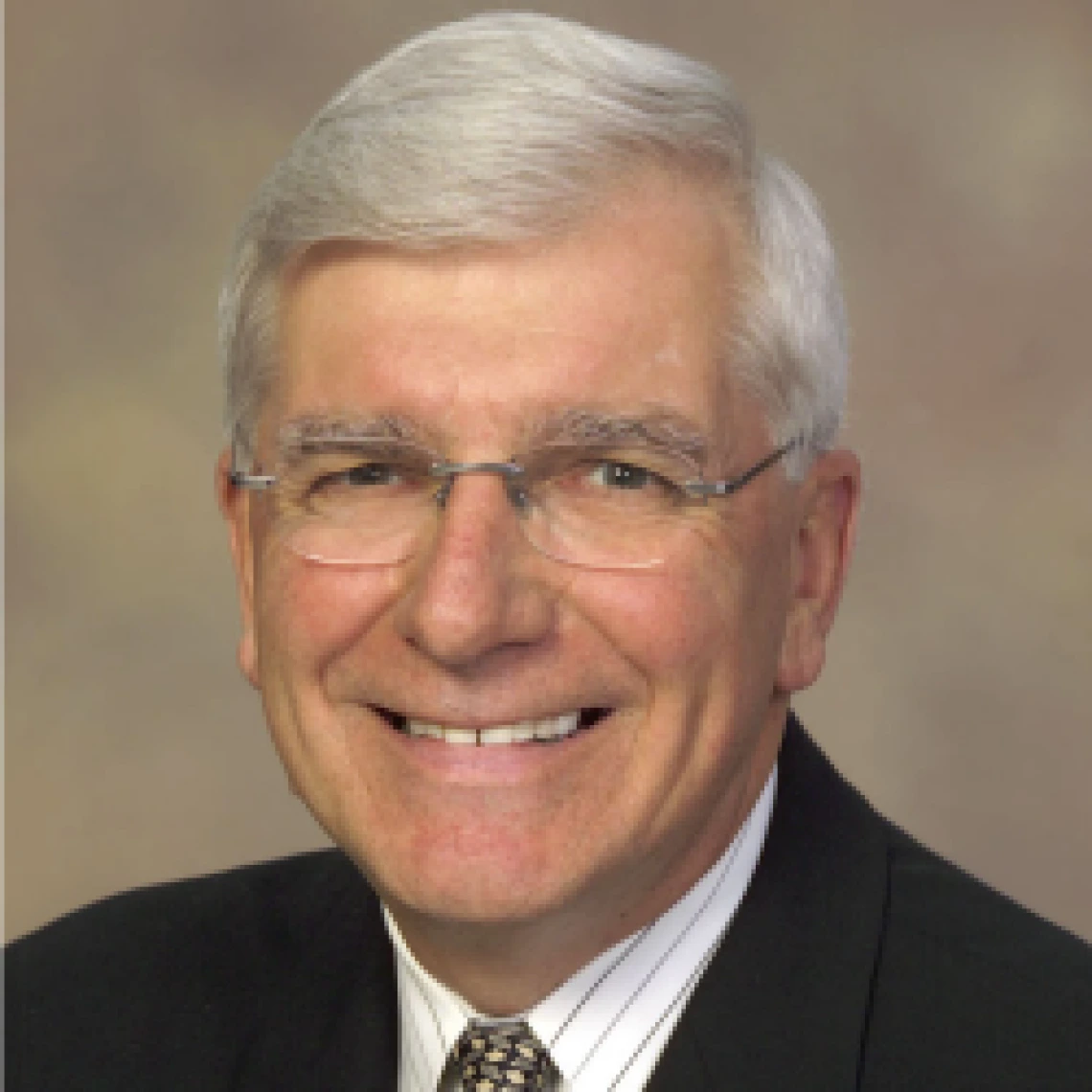Laurence Hurley, PhD, named 13th annual Sydney E. Salmon, MD, Distinguished Investigator

Laurence Hurley, PhD, has been named the winner of the 13th annual Sydney E. Salmon, MD, Distinguished Investigator Award.
Dr. Hurley, the Howard J. Schaeffer Chair in Pharmaceutical Sciences at the University of Arizona College of Pharmacy and a member of the University of Arizona Cancer Center's Therapeutic Development Program presented a lecture titled, "Small Molecule Targeting of Oncogene Transcriptional Control," on Thursday, May 21, at Kiewit Auditorium at the University of Arizona Cancer Center.
The Sydney E. Salmon, MD, Award recognizes UA Cancer Center faculty members for their leadership in cancer research, grant support, publications, community service and clinical responsibilities. It was established to honor and remember Dr. Salmon, the Cancer Center’s founding director, and is presented annually as close as possible to his May 8 birthday.
The logo for the Salmon Award is based on a Zuni fetish and was chosen because it symbolizes great curative abilities and also represents Dr. Salmon’s fondness for Southwestern culture. The Salmon lecturers are presented with a Zuni Bear fetish created by a Zuni artist.
During his touching and informative talk, Dr. Hurley paid tribute to a pair of deeply influential people in his career: Dr. Salmon, and William Remers, PhD—an instructor-turned-colleague who passed away earlier this year.
"A number of us benefited immeasurably from the intelligence and generosity of these two great men," Dr. Hurley said.
Throughout his lecture, Dr. Hurley touched on the numerous groundbreaking studies in the field of cancer therapeutics and highlighted the many researchers and clinicians that aided him along the way.
During his introduction of Dr. Hurley, UACC Director Andrew Kraft, MD, mentioned that he often used Dr. Hurley's compounds when treating sarcoma patients.
Dr. Hurley was born in 1944 in Birmingham, England. He received his BPharm (Honors) in 1967 from Bath University and his PhD (Medicinal Chemistry) in 1970 from Purdue University.
Dr. Hurley’s present research interests are in the areas of design and development of antitumor agents. Over the last twenty five years work from his laboratory has led to elucidation of the structures of the drug-receptor complexes for seven different groups of compounds that are potentially useful in the treatment of cancer.

In cooperation with the pharmaceutical industry, several drugs developed with the aid of these studies have been evaluated in Phase 1 and 2 clinical trials, and one of these (Yondelis) is approved for use in Europe for soft tissue sarcomas. Most recently his research has centered on secondary DNA structures, particularly G-quadruplexes and i-motifs, as gene targets for drug design.
A first-in-class G-quadruplex-interactive compound (Quarfloxin), developed from technology and a lead compound licensed from The University of Arizona and The University of Texas, was advanced into phase 2 clinical trials by Cylene Pharmaceuticals in 2007. He is presently CSO of TetraGene a UA Biotech start-up company with platform technology targeting MYC, kRAS, hTERT, and BCL2.
Dr. Hurley has been a consultant to a number of pharmaceutical companies and was Senior Editor for Journal of Medicinal Chemistry from 1992 to 2010. He was a member and chair of the NCI Scientific Board of Councilors. He is a recipient of the 1988 George Hitchings Award in Innovative Methods in Drug Design and the 1989 Volwiler Research Achievement Award from the American Association of College of Pharmacy.
He received the 1992 APhA Research Achievement Award in Medicinal Chemistry and the 1994 American Chemical Society Medicinal Chemistry Award. He was granted DSc degrees from Bath University (1996) and Purdue University (2013).
In 2005 he was awarded the George & Christine Sosnovsky Award in Cancer Therapy by the Royal Society of Chemistry, and in 2007 he was inducted into the American Chemical Society Medicinal Chemistry Hall of Fame and named Innovator of the Year by the University of Arizona. In 2008 he was awarded the AACP Paul Dawson Biotechnology Award.
-Nick Prevenas, May 21, 2015




